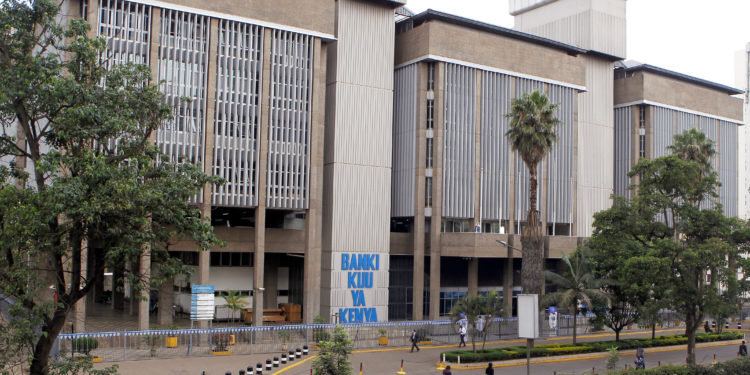The Central Bank of Kenya has initiated the reopening of two bonds with the aim of raising a combined sum of KES 35 billion through fixed-coupon Treasury bonds.
This includes the two-year bond FXD1/2023/002 maturing in 1.9 years, and the five-year FXD1/2023/05 maturing in 4.8 years. Responding to growing pressure from investors for better yields in domestic capital markets, the regulator offered competitive fixed coupon rates of 17% for the two-year bond and 16.8% for the five-year bond.
The move comes after a challenging period for the Treasury, as investors had been reluctant to invest in state papers and demanded higher interest rates, with Treasury papers undersubscribed for the past three weeks as the government avoided higher rate bids.
Nevertheless, the Central Bank of Kenya received KES 33.1 billion out of the offered KES 24 billion this week, a 138.1% oversubscription rate. Of this, the government accepted KES 27.2 billion, an 82.2% acceptance rate, of which KES 24.6 billion were competitive bids.
Read more: Government rakes in eCitizen revenue after Ruto digitization push
Yields on government papers continued rising, with the 364-day, 182-day and 92-day papers increasing to 15.2%, 15% and 14.9% respectively, up from 15.1%, 14.9% and 14.8% the previous week.
Similarly, global interest rates continue spiking upward, as the U.S. 10-year Treasury yield, a vital benchmark for mortgage rates and investor sentiment gauge, surged to its highest level since 2007, reaching 4.8% on Tuesday. The upward yield movement also extended to the 30-year Treasury yield, hitting 4.9%, unseen since 2007.
Meanwhile, the two-year Treasury yield, influenced by Federal Reserve rate expectations, inched up to 5.1%. The rising yields reflect the Fed’s ongoing inflation-fighting efforts, which, although down from mid-2022 peaks, remains a concern for policymakers.
Amid this, the Fed faces a delicate balancing act. Recent Fed official statements revealed consensus that rates will likely stay elevated for some time, as the central bank aims to control inflation and bring it to its 2% target.
Additionally, pressure from persistently high fiscal deficits and mounting public debt, now exceeding $32.3 trillion, has contributed to the rising yields, raising concerns about bond supply exceeding demand.
Email your news TIPS to editor@thesharpdaily.com


















